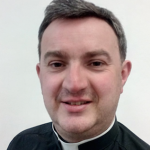 Living Wage Week begins this Sunday (5th November). In his last blog, our Director Angus Ritchie suggested ways churches can mark the week – in particular supporting Clean for Good’s #WhoIsMyCleaner campaign. In this second blog, he looks at the Gospel readings set in the lectionary.
Living Wage Week begins this Sunday (5th November). In his last blog, our Director Angus Ritchie suggested ways churches can mark the week – in particular supporting Clean for Good’s #WhoIsMyCleaner campaign. In this second blog, he looks at the Gospel readings set in the lectionary.
Some churches will be keeping 5th as All Saints Sunday, where the Gospel reading is Matthew 5.1-12 (the Beatitudes). Others, including all Roman Catholics, will use the readings for the 31st Sunday in Ordinary Time, where the Gospel is Matthew 23.1-12 (in which Jesus criticises the religious leaders of his day for their hypocrisy and love of status).
Both readings focus on the practical implications of our faith. We do not win salvation by our good works, but such works are the inevitable fruit of lives in which the Holy Spirit is at work. In both passages, the works which flow from our faith challenge this world’s hierarchies.
Jesus’ warning in Matthew 23 applies as much to religious leaders in our own day . When our faith becomes a matter of appearances, and the different offices in the Church are about status, we have lost sight of its true meaning. As Jesus points out, there is a contradiction between what the religious leaders teach and what they do. In advising his hearers to “do what [the religious teachers] tell you and listen to what they say; but do not be guided by what they do” he is affirming the central message of the Jewish Law and the Prophets – worship of God, love of neighbour and justice for the poor. Jesus ends by declaring that in the Kingdom of God, this world’s hierarchies are to be reversed. Instead of seeking exalted status, religious leaders need to recognise that those whom the world oppresses and exploits are at the very heart of this new Kingdom.
On the feast of All Saints, we look forward to the fulfilment of that Kingdom – remembering the great company of people who followed Christ on earth, and now see him face to face. Some saints are well-known to the whole church; some may have a particular personal significance; some will be unrecorded lives of faithfulness which are known to God alone. This “great cloud of witnesses” surrounds us as we journey on. It shows us that the power to change our world comes when we act together – one Body, united across time and space. For the power of the saints lives lay, not in being superheroes, but part of this Body. God calls us to be saints not heroes. We do not stand at the centre of our story. We stand, as members of the Body of Christ, around a story in which Christ is central. The words of the Beatitudes remind us that God chooses to work most powerfully through the very people the wider society ignores, belittles and judges. Those without earthly status are often more aware of their need of God – and of each other.
The Living Wage Campaign is an excellent example of what we can do, not by acting as individual heroes, but by harnessing the power of common action. Achievements that would have seemed unimaginable when the campaign began have resulted from a willingness to join hands and act together, both within our churches and beyond their walls.

Leave a Comment